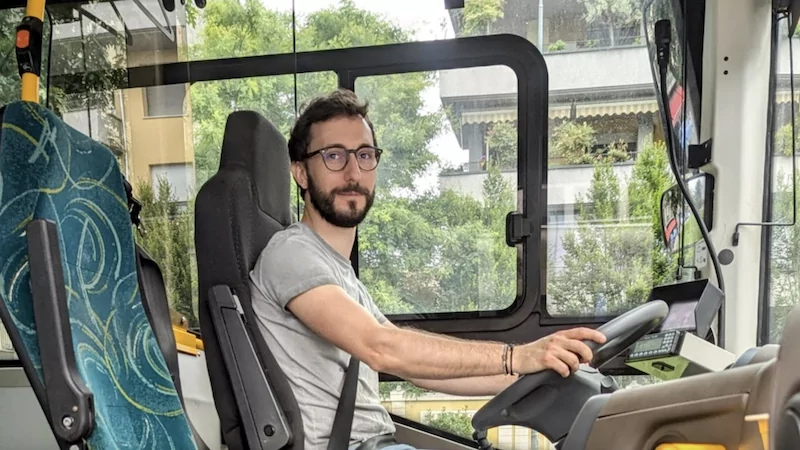Wayla is the name of the new startup that aims to revolutionise the way people move around the city. The name is the English transliteration of a very Milanese way of saying hello and is therefore pronounced ueilà and Milan is the city from where the service will start by the fourth quarter of the year.
The start-up team, in the person of co-founder Alessandro Villa, who also holds the operational role of COO, developed this service with the clear intention of offering citizens a practical, effective, safe and economical alternative to urban non-scheduled mobility, which, especially in recent times, has shown all its shortcomings and inefficiencies and should become the subject of a profound structural overhaul.
“Our users will be able to book door-to-door urban rides via app, on board our vans, and share the route, in its entirety or only in part, with other passengers. In fact, the vehicles will not follow fixed routes or set timetables, but dynamic routes based on requests received, finally offering a safe, comfortable and economical way of getting around the city,” Villa tells Startupbusiness.
The service will start in Milan from October 2024, and will be able to operate legally without the need for taxi licences, already in accordance with the current legal framework that refers to the regulations on bus rental with driver (Law 218/2003, taken from Regulation 6/2014 of the Lombardy Region), using M2 category vehicles (capacity 9+ seats) and thus being able to operate an urban service without the need for a taxi licence.
The start-up team has structured the service and developed the business plan also thanks to the support of a team of investor-advisors with international experience in the sector: among them are Marco Ficarra of Moffu Labs and Ludovico Maggiore of MobilityUp, who participated in the EUR 500,000 pre-seed fundraising round, which is being completed in these very weeks.
‘Our first goal,’ adds Villa (pictured), ‘is to aim for 20,000 passengers on our vehicles in the first 12 months of operation. We will initially focus on the evening and night time slots, from Thursday to Sunday, from 7pm to 3am, and we will operate in the area enclosed by Milan’s outer ring road (for those familiar with the city, this coincides with the 90/91 circular bus route), to cover the large city centre. In the coming months we will proceed with the expansion of the fleet to widen the operational window and the service area, aiming to provide a 24-hour service over a large part of Milan, and then go beyond the Lombard capital. In fact, we decided to launch the project from Italy on the basis of the significant demand-supply gap that has been created in urban mobility in our country in Milan and in many other cities, up to 40 per cent of requests for taxi rides are not accepted due to a shortage of vehicles. Our service will be able to operate legally without the need for a taxi licence, thanks to the adoption of larger vehicles; the initial fleet will consist of 16-seat Fiat Ducato vehicles’.
The start-up aims, in the coming years, to expand the service to all major centres in the country, but the shared operation model appears to be potentially successful even abroad, albeit in competitive scenarios even more complex than the Italian one.
“It is our goal to gradually extend the service and cover the Milanese hinterland in the medium term. The decision to start from the centre stems from the need to cover the area extensively, even with a small number of vehicles, and to serve a densely populated area, which allows the pooling model to work well, also considering that the gap between supply and demand also exists in the city centre and increases sharply in the evening period, where, for example, sharing vehicles tend to remain in the suburbs after being used by commuters”.
In perspective Wayla intends to grow then both geographically by expanding the operational air in the cities where it is present, opening in new cities both in Italy and abroad, and in terms of time slots aiming to offer a highly competitive service not only in capillarity and availability but also in costs, initially the ride has a cost of 11 euros per passenger, that is about half the cost of a cab ride considering the initial coverage area. The vehicles will be, in tendency, all electrically powered and will be equipped with the devices to be able to accommodate people with disabilities, environmental sensitivity and social impact may be two additional elements capable of strengthening the competitiveness of an initiative such as Wayla’s that comes to reinforce the concept that greater availability of non-scheduled public transport services that are efficient and economically sustainable for all translates into a reduction in the presence of private vehicles, accidents due to impaired driving and above all in safety for people.
ALL RIGHTS RESERVED ©
